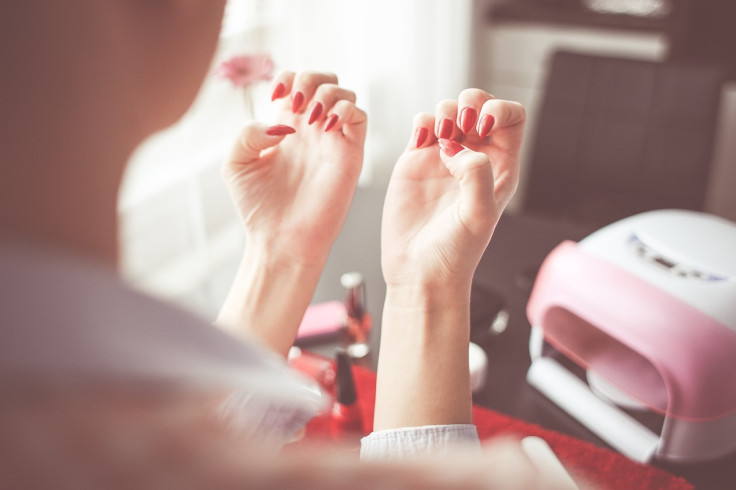Manicure Hazard? UV Nail Polish Dryers May Be Damaging DNA, Cells, Study Finds
KEY POINTS
- Researchers exposed cells to UV nail polish dryers
- Both conditions resulted in cell death
- The exposure also led to DNA damage
Manicures may be a staple in some people's self-care regimen, but they may be posing a risk that they may not be considering. The ultraviolet (UV) nail polish dryers used to cure gel nail polish may actually be causing cell death and DNA damage.
Compared to the usual manicures that use regular nail polish, gel manicures use a type of nail polish formula that only sets by being exposed to a special UV light. While gel manicures certainly look quite nice and are long-lasting, there have been concerns about the safety of the UV light used to obtain it.
"The number of nail salon clients is estimated to reach 8 clients a day per nail technician, accounting for approximately 3 million daily clients in the United States," noted the researchers of a new study, published Tuesday in Nature Communications. "Recently, a small number of melanoma and non-melanoma cases, reported either on the nail or on the dorsum of the hand, have also been putatively attributed to exposure to UV radiation emitted by nail polish dryers."
In fact, one of the researchers came up with the idea for the study upon learning of a pageant contestant who got a rare form of cancer on her finger, according to the University of California San Diego (UC San Diego).
For their work, the researchers sought to evaluate the possible impact of the UV radiation emitted by nail polish dryers by conducting an experiment using human and murine (rodent) cells: adult human skin keratinocytes, human foreskin fibroblasts, and mouse embryonic fibroblasts.
Researchers tested both acute and chronic exposure to the UV light device for 20-minute sessions, UC San Diego noted. The former entailed about an hour's break between two 20-minute sessions, and for the latter, the cells were placed under chronic exposure for 20 minutes each day for three days.
Both conditions resulted in cell death, with just one 20-minute session leading to 20 to 30% cell death and the three consecutive sessions causing a surprising 65 to 70% cell death, noted UC San Diego. The exposure also caused mitochondrial and DNA dysfunction in the cells that remained, with mutation patterns similar to the signatures that have been associated with skin cancer in humans.
"We saw multiple things: first, we saw that DNA gets damaged," corresponding author, Ludmil Alexandrov of UC San Diego, said in the university release. "We also saw that some of the DNA damage does not get repaired over time, and it does lead to mutations after every exposure with a UV-nail polish dryer. Lastly, we saw that exposure may cause mitochondrial dysfunction, which may also result in additional mutations. We looked at patients with skin cancers, and we see the exact same patterns of mutations in these patients that were seen in the irradiated cells."
According to the researchers, the results demonstrate how exposure to the radiation from UV nail polish dryers may cause DNA damage and "permanently engrave mutations."
Even if other products use UV light, such as the ones used by dentists to cure dental fillings, the ones used for manicures tend to be used rather regularly, noted UC San Diego.
"Taken together, our experimental results and the prior evidence strongly suggest that radiation emitted by UV-nail polish dryers may cause cancers of the hand and that UV-nail polish dryers, similar to tanning beds, may increase the risk of early-onset skin cancer," the researchers wrote, noting the need for further large-scale studies. "It is likely that such studies will take at least a decade to complete and to subsequently inform the general public."
The researchers clarified that the results were based on cell models, so they will not "perfectly" match what will happen in human beings. But even if more studies will be needed to understand in depth the potential risk of cancer posed by regularly using such devices, the results demonstrated that chronic use may indeed be damaging to human cells.
As such, it's a risk that some people may not want to take.

© Copyright IBTimes 2024. All rights reserved.






















